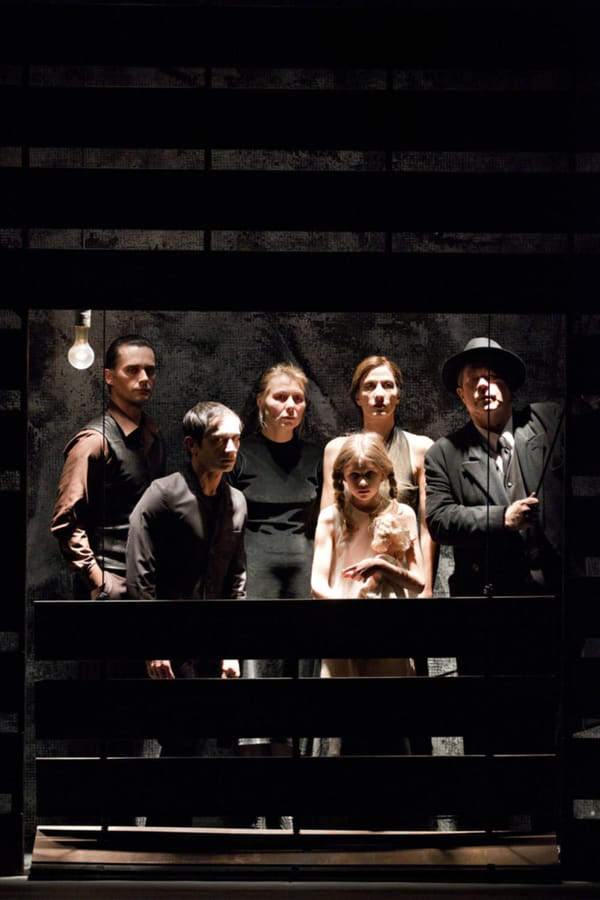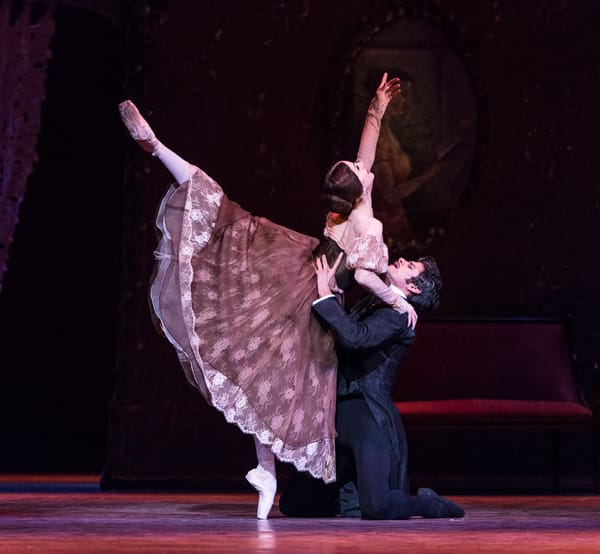Little Light – a family affair
Max Falkenberg visits the new Orange Tree Theatre show

There’s something very familiar about watching siblings argue. Whether you’re brother or sister, older or younger, at some point in your relationship a certain degree of sibling rivalry seems inevitable. So, for a change, it was rather refreshing to see Little Light open on what felt like a reasonably normal concept: two sisters, seeing each other once a year to tell little bits about their little lives, and occasionally losing it.
That doesn’t mean Little Light started as a particularly exciting play. Set on the seaside away from the peering eyes of neighbours, Alison and her husband Teddy live in a somewhat muted, dysfunctional state. An argument about Teddy having ripped out the stairs to replace them with a ladder dominates the first few minutes of the play. There is a clear, loving relationship on show, but something’s missing in their lives. Teddy recalls the conversations he’s had with Alison, their trip to Venice, and the travesty of Teddy not having cooked the lamb for lunch. Alison insists that he’s making most of it up; she’s controlling and particular, but otherwise unremarkable.
The auditorium is intimate and quiet. Set in the round, it feels very much like the dining room the play is set in, but there is a distinctly unsettling feeling going around. It’s all a bit slow to get going, and while that can sometimes be used to a show’s advantage, it does feel a little too dragged out on this occasion.
Birch’s mastery of emotion is spectacular and I praise the depths of the characters she offers us.
With the entry of Clarissa, Alison’s sister, the play seems to find some energy. Played by Yolanda Kettle, there’s a certain charisma in her performance which draws the audience in. Pregnant, and covered in mud from running through the rain, Clarissa’s arrival sparks Alison into life. Although the casting leaves their relationship a little unclear, their initial discussion has all the hallmarks of a frayed sibling relationship. Anger at having arrived early and furious that Clarissa has brought her uninvited boyfriend, Alison’s behaviour becomes increasingly irrational. With an insistence on tradition and complete control over her husband and sister, the play finally gives us a clue as to what’s going on:
“I wanted to ask you if this year could be different.”
Although it was the first play Alison Birch wrote, this is her fourth major production. With its clear emphasis on family and tradition, Birch places a distinct importance on secrets. Simon, Clarissa’s boyfriend arrives, many years her senior but with a degree of denial about the difficulties of handling family conflict. Alison’s furious, and Simon is clearly unaware of the unspoken traditions of this yearly meeting. As the play develops, his relationship with his pregnant wife and Alison’s need for control build into a state of extreme tension. Although little happens for the first three quarters of the play, the power behind the language and the emotion grows spectacularly. What felt a little dull to start now leaves you teetering on a cliff’s edge.
Little Light is an emotionally tense and well thought out journey
With sharp, biting dialogue and epic, poetic monologues, the lack of understanding on the part of the audience seems trivial. We want to know more, we want to hear more but most of all, we want a release of the tension. Birch’s mastery of emotion is spectacular and I can only praise the depths of the characters she offers us.
Yolanda Kettle and Paul Hickey as Clarissa and Simon stand out against the performances of Lorna Brown as Alison and Paul Rattray as Teddy. What feels muted and unpleasant in Alison never seems to lift and by the end, her actions don’t particularly interest us. Simon in contrast is refreshingly normal. The audience both empathise and understand his situation within the play, and in many cases Simon’s observations of Alison and Teddy are shared by the audience.
The overall result is impressive, but as a whole the show certainly falls down in places. Its slow start and Alison’s overly monotonous behaviour can be tedious. But in the context of the madness that unfolds, our focus is well held by the tension built throughout.
As a complete performance, Birch can be proud of her script transmission onto stage; perfectly suited to the round and an interesting insight into the vision of artistic director Paul Miller, Little Light is an emotionally tense and well thought out journey. Examining the nature of family and the pain of losing someone dear to you, this show provokes thought and even in its sadness, leaves an audience satisfied at the end.
Little Light is on until the 7th March. Tickets from £10









